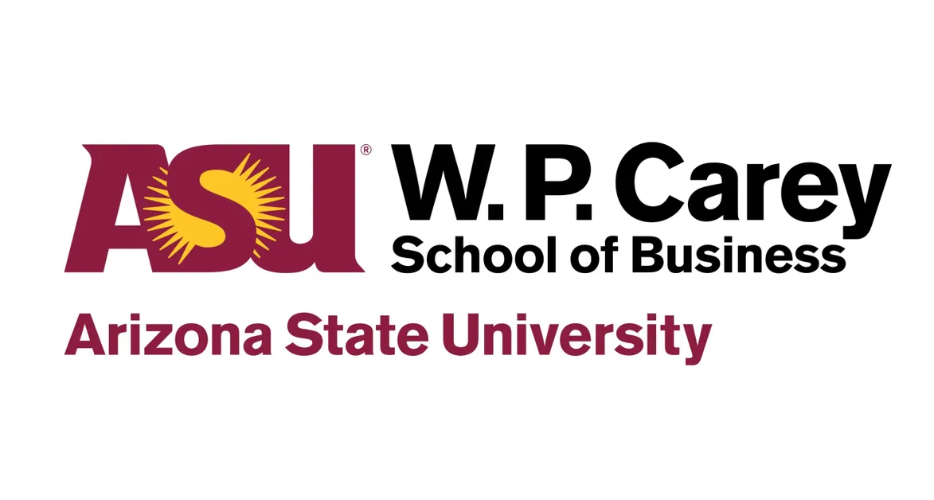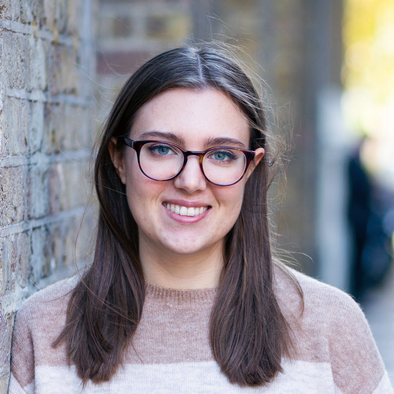After giving a scholarship to every MBA student, W. P. Carey School of Business is looking for people who give back—and this means evaluating applications beyond GMAT scores
MBA applications for the next academic year are in full swing. Amidst those late nights of GMAT prep, refining your interview etiquette, and staring at essay questions over and over, there's one question on everyone's minds: how can you really know what admissions directors are looking for?At , the intention is to ‘make business personal’, and this philosophy extends to everything from scholarships to their application procedure.
The MBA program at W. P. Carey is currently ranked 29th in the US by US News & World Report, and with the school offering every incoming MBA student a scholarship ranging from 100% tuition to a grant, naturally, competition is high. The average GMAT for MBAs at W. P. Carey sits at 694, so knowing what their admissions team are looking for could be a big help when preparing those all-important essays.
For John Wisneski, director of the Full-time MBA program, the secret to impressing an admissions director at W. P. Carey is inherently tied to the school's 'Scholarships for All' philosophy.
“We’re making a very heavy investment in students, and we realized that if we invest in our students, likewise, we want our students to invest in one another,” he explains.
“We preach in the classroom about return on investment all the time, so we’re asking each student to be held accountable to return on our investment in scholarship dollars.”
How do you write the perfect essay?
This year, there’s been a marked change in the MBA application procedure at W. P. Carey—namely, in the phrasing of one crucial question on the application form.
“We have two essay questions on our MBA application,” explains John, “the first asks what do applicants envision doing with their new academic credentials, but the new, second question is more outward. We’re asking applicants what sort of impact they envision making while a student in the MBA program."
Specifically, the new essay question asks students to consider 'what specific contributions do you plan to make both in and outside of the classroom' while at W. P. Carey.
The change, though it may seem slight, adds a new element to the way that W. P. Carey evaluates admissions to their , and is ultimately tied to their belief that every student should have the chance to complete an MBA.
“It’s a thoughtful question that asks students to think about their experience and skills and how they’ll contribute in a unique and authentic way to the learning of their peers,” John adds. “We’re essentially looking for candidates that can describe clearly and concisely how they can make the learning environment better.”
So where do GMAT scores come in, then?
“The answer is very common across business schools—we look at all of it equally,” says John. “But we do believe that the qualitative responses are where students can really distinguish themselves.”
“The classic quantitative measures of GMAT or GPA are just that—they’re a forced ranking,” he adds. “Where students can distinguish themselves a great deal is in the characteristics of their career goals and anticipated contributions to the MBA program.”
How to impress the admissions director
Louise Hardman (pictured) is a recent successful applicant to W. P. Carey’s full-time MBA program—she started in September 2018.

Louise has a background in mechanical engineering and decided to do an MBA to “gain that fundamental business background,” she says.
“I want to really apply strategies and high-level thinking to help companies grow and drive innovation,” she explains. “The has a strong focus on self-transformation, there are a lot of career switchers and a lot of resources for mentoring and career coaching.”
Coming from such a technical background, Louise says she found the application initially quite tough. “The hardest thing was trying to visualize my career path moving forward,” she explains. “When I was writing my essays I was really thinking ‘what are the MBA skills that are going to add to my engineering skill set.’”
To flourish in your MBA applications, engineer or not, Louise suggests one thing. “Be honest with yourself and figure out why you want the MBA,” she says.
John has the same tip. “The best advice I can give is for students to be as authentic and genuine in their applications as they can possibly be,” he states.
“It’s that genuine response that we’re really looking to evaluate,” John adds. “If the candidate is not genuine in expressing what their goals are it’s really hard for us to make a good decision, both for them and for us.”
Student Reviews
W. P. Carey School of Business - Arizona State University
Hands on Experience, labs
I love that that this school is known all over the world and the education is of high quality. It's been recognized by U.S. News & World Report as No. 1 for best online bachelor's in business programs
Amazing Start to Your Career in Social Sciences
I had a great experience at ASU as a Political Science student. ASU is one of the biggest universities in the U.S., offering a wide range of studies. The student body was diverse and overall great to study with. ASU is rich in both academics and student life. There are many clubs, student organizations, amenities, and activities you can join. One thing I would recommend is invest in a lot of sunscreen and good walking shoes. Due to it's large campus you'll be doing a lot of walking which is great but can be a bit of a struggle during the very hot summer months.
Great MSW program!
Arizona State University has an amazing online Master of Social Work Program. Even though it was an online program, I feel that I developed great connections with professors, co-instructors, and peers. Finding an internship placement was stress free because of the high level of support the program offered. I would definitely choose to go back to ASU if I decided to further my education in future.
Long lasting friendships
I have been able to have incredible experiences and make connections that will live long in my memory. I've had the chance to start my career here in a way I never thought I would. I love how the university lets you choose your major and minor and take classes with a lot of freedom.
Continuous Support
Opinion
Arizona State University has many great opportunities available to students. All of the departments are very helpful and really care about student's succeeding.
What's there to like?
One think I like about ASU is their Education program. They really ensure that students will receive useful information that is directly applicable to their career.
One thing I dislike is, nothing! It is a high ranking university but one notable thing is that the school is located in Arizona; where temperatures reach well over 100° throughout the entire Summer.
Would I reccomend ASU?
I would certainly reccomend Arizona State University for any students who are looking to learn and gain meaningful experiences throughout finishing school.
Arizona State University
ASU is a wonderful university with so many educational opportunities. Its professors are friendly and approachable and were always willing to help or give advice to students whenever their help was needed. It also provided students with many opportunities to meet people outside the classroom for example clubs and other social events hosted within the university. ASU offers great education and I loved the campus and faculty
Practical Lecturing
The amazing features about Arizona State University would not allow me to write less when it comes to recommending the second to none university to the public! Life on Arizona State University campus is an intriguing possibility! Here is where dreams are realized due to the immense support from lecturers academically as well as fascinating large lecture halls with modernized appliance that makes learning easier. Goals are realized with ease as students who need support are given chances
University program
The university offers a lot of options for students, particularly in terms of integration and extracurricular activities including involvement in several student organizations. However, I am dissatisfied with the quality of the information offered and the degree of practice skills needed for success in a professional position. Fantastic university location
ASU infrastructures
Without a doubt, I would suggest this university. There is a highly educated personnel with an exceptional commitment toward teaching. The highly developed infrastructure and technology is another significant plus.
Hands on Experience, labs
I love that that this school is known all over the world and the education is of high quality. It's been recognized by U.S. News & World Report as No. 1 for best online bachelor's in business programs
Amazing Start to Your Career in Social Sciences
I had a great experience at ASU as a Political Science student. ASU is one of the biggest universities in the U.S., offering a wide range of studies. The student body was diverse and overall great to study with. ASU is rich in both academics and student life. There are many clubs, student organizations, amenities, and activities you can join. One thing I would recommend is invest in a lot of sunscreen and good walking shoes. Due to it's large campus you'll be doing a lot of walking which is great but can be a bit of a struggle during the very hot summer months.
Great MSW program!
Arizona State University has an amazing online Master of Social Work Program. Even though it was an online program, I feel that I developed great connections with professors, co-instructors, and peers. Finding an internship placement was stress free because of the high level of support the program offered. I would definitely choose to go back to ASU if I decided to further my education in future.
Long lasting friendships
I have been able to have incredible experiences and make connections that will live long in my memory. I've had the chance to start my career here in a way I never thought I would. I love how the university lets you choose your major and minor and take classes with a lot of freedom.
Continuous Support
Opinion
Arizona State University has many great opportunities available to students. All of the departments are very helpful and really care about student's succeeding.
What's there to like?
One think I like about ASU is their Education program. They really ensure that students will receive useful information that is directly applicable to their career.
One thing I dislike is, nothing! It is a high ranking university but one notable thing is that the school is located in Arizona; where temperatures reach well over 100° throughout the entire Summer.
Would I reccomend ASU?
I would certainly reccomend Arizona State University for any students who are looking to learn and gain meaningful experiences throughout finishing school.
Arizona State University
ASU is a wonderful university with so many educational opportunities. Its professors are friendly and approachable and were always willing to help or give advice to students whenever their help was needed. It also provided students with many opportunities to meet people outside the classroom for example clubs and other social events hosted within the university. ASU offers great education and I loved the campus and faculty
Practical Lecturing
The amazing features about Arizona State University would not allow me to write less when it comes to recommending the second to none university to the public! Life on Arizona State University campus is an intriguing possibility! Here is where dreams are realized due to the immense support from lecturers academically as well as fascinating large lecture halls with modernized appliance that makes learning easier. Goals are realized with ease as students who need support are given chances
University program
The university offers a lot of options for students, particularly in terms of integration and extracurricular activities including involvement in several student organizations. However, I am dissatisfied with the quality of the information offered and the degree of practice skills needed for success in a professional position. Fantastic university location
ASU infrastructures
Without a doubt, I would suggest this university. There is a highly educated personnel with an exceptional commitment toward teaching. The highly developed infrastructure and technology is another significant plus.
Uncomplicated and lots of great classes
The application process and anything with admin was easy and made students' lives easy. There were many good classes to choose from as well. The professors were professionals in their subjects and led successful class discussions. The reading lists were also full of great choices.
Flexible coursework
I liked about the way a student could choose from thesis, applied project, or a portfolio to complete a degree. And it’s in a prime location where semiconductor companies are situated. Also the university is diversified and cost of living is less.
Flexible
ASU is great for working students. What I like most is the flexibility. Students can choose to take their courses during the mornings, afternoons, evenings, or online. I dislike most is the lack of good electives to choose from.
amazing professors
As a student at Arizona State University, I've had the pleasure of learning from outstanding professors who are not only experts in their fields but also genuinely care about their students' success. They make complex topics easier to understand through engaging and practical teaching methods. Professors are approachable, always available for support during office hours or via email, and their passion for their subjects makes learning enjoyable. Their dedication and commitment truly enhance the academic experience at ASU.
Inclusivity and Diversity
Arizona State University (ASU) is widely recognized for its innovative approach to education, offering a broad range of undergraduate programs across multiple campuses and online. Its strong emphasis on research, sustainability, and inclusivity attracts a diverse student body.
Great school
The culture around sports, student life and overall campus life is beautiful. I loved ASU and would not mind going back to study another program. Go - Sundevils. Their rival school is University of Arizona so expects a lot of talks about them
Goal-Oriented
My experience at ASU Online is amazing. The advisors are with you every step of the way and help you stay on track to graduation. They offer clarity and advice when it comes to what classes you need exactly and how to manage a heavy course load.
MSW at ASU
The program was incredible. The instructors and their experience were critical to my learning. The mix of classroom education and hands on experience in internships and community settings help prepare me for working in the real world.
ASU - MSW Program
Incredibly diverse and fulfilling program. The instructors really care to see you become a valuable part of the social work community. The people I met in my program are now colleagues and it's amazing seeing everyone succeed after working so hard! It wouldn't have been the same anywhere other than ASU.









